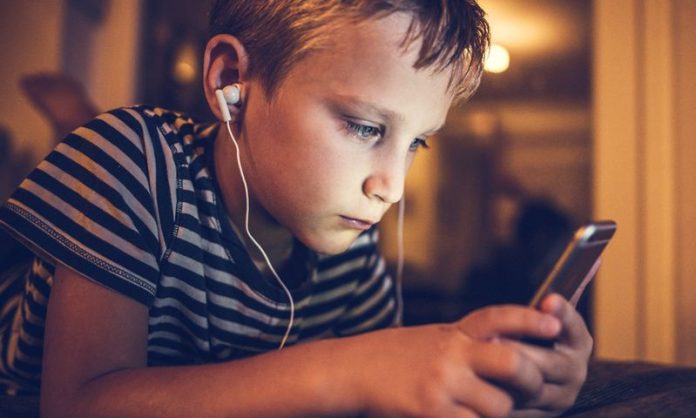Around a quarter of 5-7 year-olds now own a smartphone, while three-quarters use a tablet according to a report ouit this morning.
The media regulator OFCOM add in their survey that a third use social media unsupervised, and growing number have personal profiles
Compared to a year ago, a higher proportion of 5-7s go online to send messages or make voice/video calls (59% to 65%) or to watch live-streamed content (39% to 50%).
Similarly, overall use of social media sites or apps among all 5-7s has increased year-on-year (30% to 38%), with WhatsApp (29% to 37%), TikTok (25% to 30%), Instagram (14% to 22%) and Discord (2% to 4%) seeing particular growth among this age group.
Online gaming among 5-7 year-olds has also seen a significant annual increase – 41%, up from 34% – with more children of this age playing shooter games than ever before (15%, up from 10%).
Today’s research comes as Ofcom prepares to consult in the coming weeks on a comprehensive set of proposals to ensure children are better protected online. Additionally, Ofcom is today announcing an additional area of focus for child safety, building on the robust measures set out in our draft illegal harms Codes of Practice.
Specifically, we are planning an additional consultation later this year on how automated tools, including AI, can be used to proactively detect illegal content and content most harmful to children – including previously undetected child sexual abuse material.
While around two in five parents of 5-7 year-olds say they use social media sites and apps together with their child, a third report that their child uses social media independently.
Compared to last year, parents of these younger children are more likely to say they would allow their child to have a profile on social media services before they had reached the minimum age required (30%, up from 25%).
It follows that more children of this age now have their own personal profiles on YouTube or YouTube Kids (48%, from 39%), WhatsApp (11%, from 7%) and Instagram (9%, from 5%) than a year ago.
Three-quarters of parents of children aged 5-7 who go online say they have talked to their child about staying safe online , and over half do so at least every few weeks . Parents of older children who go online (those aged 8-17) are more likely to have ever had online safety conversations with their child .
The research suggests a disconnect between older children’s exposure to potentially harmful content online, and what they share with their parents about their online experiences. A third of 8-17s say they have seen something worrying or nasty online in the last 12 months, but only 20% of parents of this age group report their child telling them they had seen something online that scared or upset them in the same time frame.
Notably, all girls aged 8-17 are more likely than boys of the same age to experience nasty or hurtful interactions online, both via text or messaging apps (20% vs 14%) and social media (18% vs 13%).
Over nine in ten children aged 8-17 who go online can recall having had at least one lesson about online safety at school – of which three-quarters said it was useful to them. This rises to 97% among the 30% of children who had regular online safety lessons.







